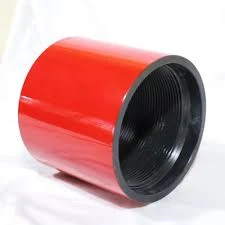- Afrikaans
- Albanian
- Amharic
- Arabic
- Armenian
- Azerbaijani
- Basque
- Belarusian
- Bengali
- Bosnian
- Bulgarian
- Catalan
- Cebuano
- Corsican
- Croatian
- Czech
- Danish
- Dutch
- English
- Esperanto
- Estonian
- Finnish
- French
- Frisian
- Galician
- Georgian
- German
- Greek
- Gujarati
- Haitian Creole
- hausa
- hawaiian
- Hebrew
- Hindi
- Miao
- Hungarian
- Icelandic
- igbo
- Indonesian
- irish
- Italian
- Japanese
- Javanese
- Kannada
- kazakh
- Khmer
- Rwandese
- Korean
- Kurdish
- Kyrgyz
- Lao
- Latin
- Latvian
- Lithuanian
- Luxembourgish
- Macedonian
- Malgashi
- Malay
- Malayalam
- Maltese
- Maori
- Marathi
- Mongolian
- Myanmar
- Nepali
- Norwegian
- Norwegian
- Occitan
- Pashto
- Persian
- Polish
- Portuguese
- Punjabi
- Romanian
- Russian
- Samoan
- Scottish Gaelic
- Serbian
- Sesotho
- Shona
- Sindhi
- Sinhala
- Slovak
- Slovenian
- Somali
- Spanish
- Sundanese
- Swahili
- Swedish
- Tagalog
- Tajik
- Tamil
- Tatar
- Telugu
- Thai
- Turkish
- Turkmen
- Ukrainian
- Urdu
- Uighur
- Uzbek
- Vietnamese
- Welsh
- Bantu
- Yiddish
- Yoruba
- Zulu
steel coupling
Understanding Steel Coupling An Essential Component in Construction and Engineering
In the world of construction and engineering, the importance of reliable and efficient connections cannot be understated. Among the various components utilized to enhance structural integrity, steel coupling stands out as a crucial element. This article aims to explore the significance, applications, and benefits of steel couplings in various industries.
What is Steel Coupling?
Steel coupling refers to a mechanical device used to connect two shafts or pipes, allowing them to transmit torque or transfer fluid or gas. Typically cylindrical in shape, these couplings can be designed for a variety of operational needs and can be made from high-grade steel, which provides exceptional strength and durability. Steel couplings come in various forms, including rigid, flexible, and fluid couplings, each serving distinct purposes depending on the application.
Applications of Steel Couplings
1. Piping Systems In plumbing and piping applications, steel couplings facilitate the connection of pipe sections. They can accommodate changes in direction, support the alignment of pipes, and ensure a leak-proof seal. This is particularly vital in high-pressure systems found in chemical, oil, and gas industries.
2. Mechanical Systems In mechanical engineering, steel couplings are commonly used to connect rotating shafts in motors and gearboxes. They provide a means to transfer mechanical power while compensating for misalignments and accommodating vibrations that occur during operation.
3. Construction and Infrastructure In civil construction, steel couplings are used to join reinforcing bars (rebar) within concrete structures. This connection enhances the overall tensile strength of the concrete, reducing the likelihood of failure under load.
4. Automotive Industry In automotive engineering, steel couplings are utilized in driveshafts and engine connections, ensuring efficient power transmission from the engine to the wheels. Their robust construction can withstand the high torque and stress involved in automotive applications.
Benefits of Using Steel Couplings
steel coupling

1. Strength and Durability Steel is known for its high tensile and compressive strength, making steel couplings an excellent choice for load-bearing applications. They are designed to endure harsh conditions, making them suitable for both indoor and outdoor environments.
2. Versatility Steel couplings come in various designs, including rigid, flexible, and custom configurations. This versatility allows engineers and designers to select the most appropriate coupling for specific applications, whether it be for plumbing, mechanical, or structural purposes.
3. Ease of Installation and Maintenance Many steel couplings are designed for quick installation, which can save time on construction and maintenance projects. Additionally, the durability of steel minimizes the need for frequent replacements or repairs, leading to lower long-term costs.
4. Resistance to Corrosion Many modern steel couplings are coated or treated to resist corrosion, which is crucial in environments where exposure to moisture or chemicals is prevalent. This resistance extends the lifespan of the coupling and, by extension, the infrastructure they support.
Challenges and Considerations
While steel couplings offer numerous advantages, there are challenges associated with their use. One significant consideration is the weight of steel couplings compared to other materials, such as plastic or aluminum, which can be beneficial in some applications but may pose handling and installation challenges in others.
Moreover, proper alignment during installation is crucial to ensure optimal performance. Misalignment can lead to increased wear, reduced efficiency, and potential failure of the coupling.
Conclusion
In conclusion, steel couplings are an essential component in various industries, providing robust connections that enhance the integrity and functionality of mechanical systems, piping, and structures. Their strength, versatility, and durability make them highly favored in engineering and construction applications. As technology continues to advance, the design and performance of steel couplings are also evolving, promising even more efficient solutions for the challenges faced in modern engineering. As industries demand increased reliability and efficiency, steel couplings will continue to play a pivotal role in meeting these needs.
-
Well Casing Extension Couplings – Applications and InstallationNewsJun.06,2025
-
Types of Crossover Subs in Drilling & CompletionNewsJun.06,2025
-
Key Features of High-Quality Tubing Pup JointsNewsJun.06,2025
-
Installation and Maintenance Tips for Steel Couplings for PipeNewsJun.06,2025
-
How to Select the Right Pup Joint for Oil & Gas OperationsNewsJun.06,2025
-
Applications of Stainless Steel Pipe CouplingsNewsJun.06,2025







